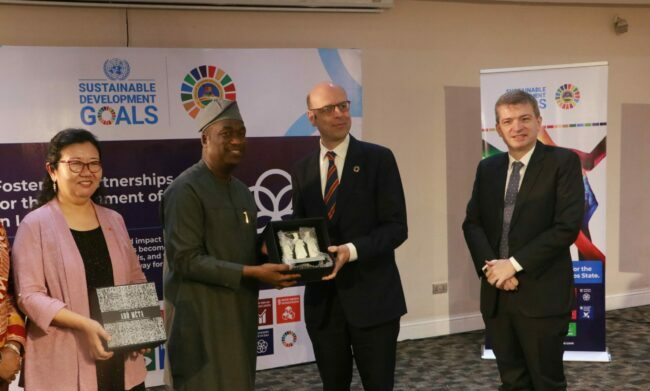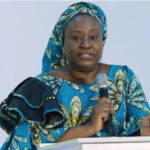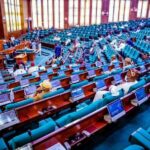Lagos State Deputy Governor, Dr Kadri Obafemi Hamzat, emphasised on Monday the need for partnership and collaboration between governments, high commissions, and development partners to successfully achieve the Sustainable Development Goals (SDGs).
Hamzat made this call at a breakfast meeting with members of high commissions and development partners, organised by the Lagos State Office of Sustainable Development Goals, held at the Wheatbakers Hotel, Ikoyi.
The deputy governor, while speaking on the theme “Fostering Partnerships for the Attainment of Sustainable Development Goals in Lagos State,” stressed that it was important for governments, representatives of consulates, embassies, multinational organisations, development partners, and stakeholders in the ecosystem to collaborate and collectively advance the quest to create a world where no one was left behind and better to live.
He described the theme as apt, saying that it serves as a clarion call, echoing through the corridors of diplomacy and development and rallying stakeholders to unite in a shared commitment towards realising a sustainable and prosperous future for all.
Speaking on the different initiatives put in place by the state government, Hamzat noted that the state government had captured the different SDGs in its theme agenda, which aims to offer solutions to the various challenges and attain sustainable development goals.
Besides, he said the state government at the weekend approved the WASH Policy, which was committed to harmonising its Water, Sanitation, and Hygiene (WASH) policies to ensure coherence at all levels.
Dr Hamzat noted that one of the biggest challenges in the developing world in achieving the 17 SDGs was physical planning, noting that a lot of African countries were where they are today due to poor physical planning and, therefore, urging for proper urban planning in order to sustain the environment for the good of all.
“Our cities must be well planned. Whatever is not planned cannot be measured, and, therefore, it cannot be managed.
“We cannot just build anywhere; it must be in an organised environment. The biggest challenge for cities like Lagos is the maintenance and sustainability of the environment,” the deputy governor said.
The Special Adviser to the Governor on Sustainable and Development Goals, Dr Oreoluwa Finnih, earlier in her remarks, noted that the gathering was to seek the partnership of different stakeholders to discuss collaboration in achieving all the SDGs for the sustainability of the state and the nation.
Finnih stated that SDG recognises that collaborations are key, which is why the 17th goal is a partnership, as, according to her, there is no way all the goals can be achieved alone.
“There is no way we can achieve all the goals alone; therefore, we must all move together, both as development partners and even across the geographical line, meaning other countries. So, it’s a partnership to attain the goals that we are supposed to achieve by 2030,” she said.
In her welcome address, the Permanent Secretary, Office of Social Development Goals, Mrs. Tolani Oshodi, assured that Lagos State was not only open for business but open for collaborative ventures that would leave a lasting legacy for generations to come.
She stressed that the office, in the spirit of partnership, welcomes their insights, expertise, and contributions towards strengthening the state government’s resolve to meet the SDG targets and the commitment to good governance.
The permanent secretary added that in the shared pursuit of a better and more sustainable future for its citizens, the state had consistently demonstrated its commitment to pioneering innovative solutions and embracing progressive policies, noting that the resilience and dynamism of the vibrant state served as a testament to the transformative power of collective action.
Oshodi noted that the event, themed “Fostering partnership for the attainment of Sustainable Development Goals (SDGs) in Lagos State,” emerges from the office’s shared commitment to a cause that transcends borders and resonates with the global imperative for sustainable development.
WATCH TOP VIDEOS FROM NIGERIAN TRIBUNE TV
- Let’s Talk About SELF-AWARENESS
- Is Your Confidence Mistaken for Pride? Let’s talk about it
- Is Etiquette About Perfection…Or Just Not Being Rude?
- Top Psychologist Reveal 3 Signs You’re Struggling With Imposter Syndrome
- Do You Pick Up Work-Related Calls at Midnight or Never? Let’s Talk About Boundaries







